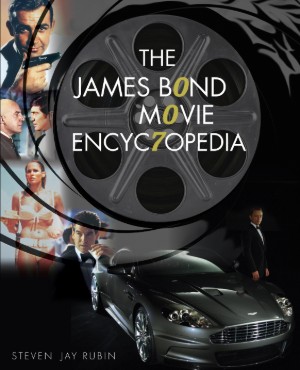(March 21, 1946– ): Classically trained Welsh actor, known for his costume films and stage work, who became the fourth actor to portray James Bond in the Eon Productions series of 007 films. When he replaced Roger Moore starting with The Living Daylights in 1987, the series underwent a major about-face in focus and tone. Moore’s comfort with witty lines, light comedic situations, and fantasy plots was replaced by a hard-edged reality and moments of unflinching violence that reflected Dalton’s more realistic approach to the character of 007.
Dalton told film journalist Craig Modderno in 1989, “I think Roger was fine as Bond, but the movies had become too much techno-pop and had lost track of their sense of story. I mean, every movie seemed to have a villain who had to rule or destroy the world. If you want to believe in the fantasy on screen, then you have to believe in the characters and use them as a stepping stone to lead you into this fantasy world. That’s a demand I made, and Albert Broccoli agreed with me.”[1]
Timothy Dalton had the perfect Bond qualities. He was tall, handsome, athletic, commanding. He was believable as a British secret agent with a license to kill who can bed any lady he wants. Most of all, Dalton was an excellent actor who brought a wealth of experience to the set.
In interview after interview, the new Bond told reporters that he was rereading the Fleming novels, especially his favorite, Casino Royale, in order to research his new role. This James Bond was not going to play second fiddle to gadgets and breathless females. In Vienna for the start of filming on The Living Daylights, Dalton said, “I intend to approach this project with a sense of responsibility to the work of Ian Fleming and to the project The Living Daylights as written by Michael Wilson and Richard Maibaum. I have to make it my own. . . . I think the essential quality of James Bond is that he’s a man who lives on the edge. He never knows when at any moment he might be killed, therefore I think some of the qualities we associate with Bond . . . reflect that sense of danger in his own life. We know that he drinks—lines like ‘shaken not stirred’ reflect that sense of drinking. We know he smokes and likes to drive fast cars. I think the qualities of the man are really the qualities of a man who’s living very much on the edge of his life. He’s always liked his women. I suppose he can take them or leave them, or maybe take them and leave them”[2]
Dalton’s debut in The Living Daylights was terrific. His first close-up on the Rock of Gibraltar, as he spies the death of a fellow agent, is riveting. His arrival via parachute onto the yacht of a playgirl is equally perfect. There was no hesitation in his performance. His fisticuffs appeared genuine—especially compared to Moore, who had a tendency to use too much kickboxing—and he could underplay situations.
He didn’t play humor well—but, then, the humor in his films was not written well, especially in the virtually humorless Licence to Kill. In The Living Daylights, Dalton can be forgiven for not putting across his punning remarks, because they were probably written to be delivered by Pierce Brosnan, the original choice for the next Bond until he was unable to get out of his contract with NBC’s Remington Steele. In Licence to Kill, however, Dalton was saddled with a dead-serious story with very little room for humor, especially from the villains. It was a James Bond circus without the clowns.
Unlike Moore, who always seemed to be in command, Dalton’s Bond seems like a candidate for the psychiatrist’s couch—a burned-out killer who may have just enough energy left for one final mission. That was Fleming’s Bond: a man who drank to diminish the poison in his system, the poison of a violent world with impossible demands. Dalton’s was the suffering Bond.
A native of Colwyn Bay, Wales, Dalton made his promising feature debut as Philip II in director Anthony Harvey’s sumptuous biographical drama The Lion in Winter (1968), which also featured a memorable score from frequent Bond composer John Barry.
[1] Timothy Dalton, interview by Craig Modderno, Los Angeles, June 30, 1989.
[2] Special features, The Living Daylights, James Bond Ultimate Edition (1987; MGM, 2006), DVD.

